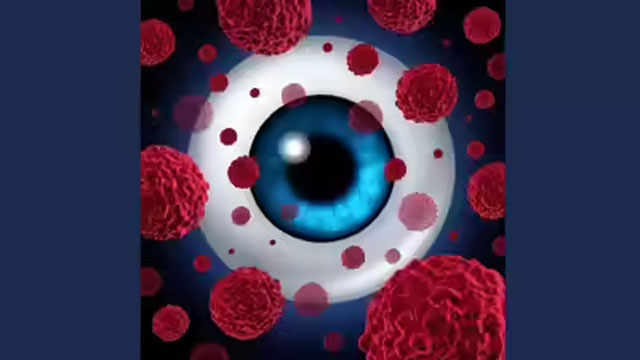Daijiworld Media Network- Mumbai
Mumbai, Jul 18: Eye cancer, though relatively rare, can have serious consequences if not detected early. It occurs when abnormal cells in or around the eye multiply uncontrollably, forming tumours that can be either benign (non-cancerous) or malignant (cancerous). While benign growths may be harmless, malignant ones can spread rapidly to other parts of the body, affecting vision and overall health.
Medical experts stress the importance of regular eye check-ups, especially as many symptoms may go unnoticed in the early stages. Timely diagnosis and treatment can help preserve both vision and life.

Doctors advise looking out for these common symptoms of eye cancer:
• Blurry or distorted vision
• Partial or complete loss of vision
• Flashes of light or floaters in the field of vision
• A visible dark spot on the iris or the white of the eye
• Changes in pupil shape or size
• Bulging of one eye
• Persistent redness or irritation
• Unusual growths or lumps on the eyelid or inside the eyeball
• Changes in eye movement or alignment
These symptoms may not always indicate cancer but warrant immediate medical attention.
Eye cancer is often discovered during routine eye exams by an optometrist or ophthalmologist. If any unusual changes in vision or eye appearance are observed, a thorough examination is recommended to rule out serious conditions.
Certain groups are more susceptible to developing eye cancer. Key risk factors include:
• Age: Most eye cancers affect people over the age of 50, although retinoblastoma can develop in children under five.
• Skin and eye colour: Individuals with fair skin and light-coloured eyes (blue or green) are more at risk.
• Genetics: Conditions like BAP1 tumour predisposition syndrome or dysplastic nevus syndrome increase risk.
• UV exposure: Though more research is needed, prolonged exposure to ultraviolet rays from sunlight or tanning beds may raise the risk of intraocular melanoma.
Doctors urge the public to be vigilant and not ignore changes in eye health. “Early detection is key,” say specialists, adding that modern treatments offer promising outcomes when the disease is caught early.